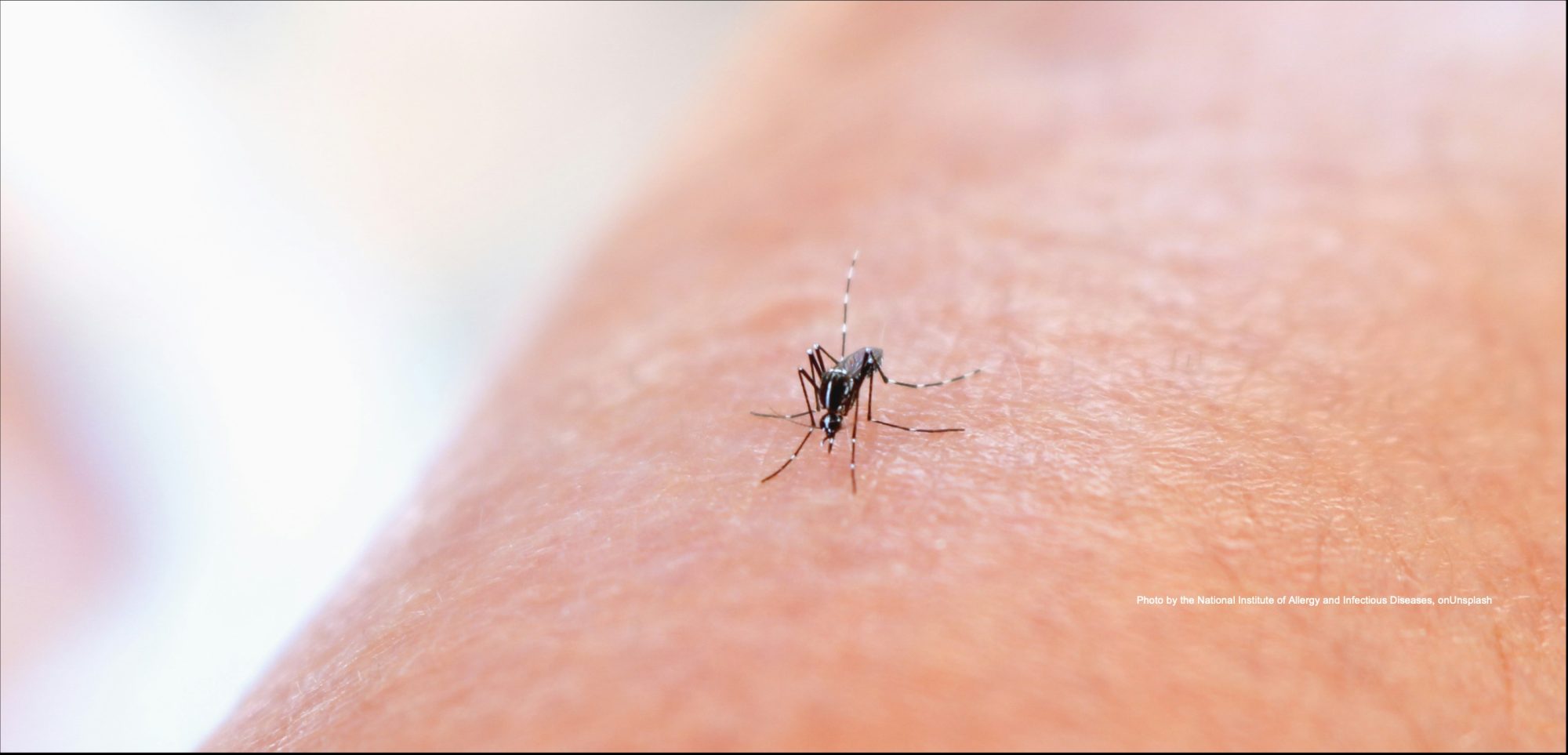The Environment and infectious diseases research group investigates the prevalence and cases of infectious diseases, by considering a broad set of environmental health determinants, using epidemiological surveillance systems to ensure the timely detection of disease outbreaks.
The climate changes and the habitat fragmentation have consequences for the ecosystems, combined with globalization and facilitated human transportation can create opportunities for infective pathogens to spread out of their ecological distribution areas, development, growth and reproduction involving their reservoirs, vectors, agents and genes. This situation as consequences for human health, regarding the emergence and re-emergence of infectious diseases, in particular those of zoonotic or vector-borne origin as it happened recently with SARS-CoV-2, MPVX, and DENV.
In Portugal, the growing concern regarding vector-borne disease is supported by the Mediterranean region, that will be hit by dramatic changes in temperature and precipitation and by historical outbreaks of relevant vector-borne diseases. The National Network of Vector Surveillance (REVIVE) as a monitoring program that allows the timely detection of any changes in abundance and species diversity of mosquitos and ticks.
Food safety has also grown, taking in account that warmer temperature in association with decreased rainfall are expected to influence the distribution, survival and transmission of pathogenic microorganisms with consequences for the patterns of their corresponding foodborne disease, mainly in developing countries, as it happens in Portuguese-speaking African countries.
Multiple factors have been implicated in the emergence and re-emergence of infections pathogens beyond environmental changes (technology and industry-related determinants, inadequate public health control measures, migration, and human behaviour). An environmental health currently relevant issue is human infection by fungi Aspergillus, and Candida auris. This RG is highly committed to contribute further knowledge to disentangle the environmental variables favouring the emergence of these pathogens.
Human behaviour and lifestyle are involved in the spread of infectious diseases, mainly in the case of sexually transmitted infections, but also concerning the spread of infectious diseases among intravenous substance users, as are the cases of hepatitis B, C, and delta, and for HIV. This RG is gathering epidemiological data on HIV, HBV, HDV, and HCV, producing detailed characterization of new infections in people living with HIV, the psychosocial context where infectious activities occur associated with a higher risk for HCV infection, the microelimination of this infection in intravenous drug users, and together with other European southern countries on hepatitis and HIV in migrants. This RG have a strong linkage with the Portuguese community (ONGs) and with the Portuguese-speaking African countries.
Recent publications:
Fernandes, R., Sabino, R., Cunha, C., Cornely, O.A., Carvalho, A., Salmanton-García, J. (2024). PT Group for IFI Management Capacity. Multicentric Study on the Clinical Mycology Capacity and Access to Antifungal Treatment in Portugal. Mycopathologia 189(1):15. https://doi.org/10.1007/s11046-024-00830-9
Fernandes, R., Sabino, R., Cunha, C., Cornely, O. A., Carvalho, A., & Salmanton-García, J. (2024). Multicentric Study on the Clinical Mycology Capacity and Access to Antifungal Treatment in Portugal. Mycopathologia, 189(1). https://doi.org/10.1007/s11046-024-00830-9
González-Pérez, M. I., Faulhaber, B., Aranda, C., Williams, M., Villalonga, P., Silva, M., Costa Osório, H., Encarnaçao, J., Talavera, S., & Busquets, N. (2024). Field evaluation of an automated mosquito surveillance system which classifies Aedes and Culex mosquitoes by genus and sex. Parasites and Vectors, 17(1). https://doi.org/10.1186/s13071-024-06177-w
Madeira, S., Bernardino, R., Osório, H. C., & Boinas, F. (2024). Mosquito (Diptera: Culicidae) Fauna of a Zoological Park in an Urban Setting: Analysis of Culex pipiens s.l. and Their Biotypes. Insects, 15(1). https://doi.org/10.3390/insects15010045
Matos, O., Karanis, P., & Razakandrainibe, R. (2024). Editorial: Impact and control of food- and waterborne protozoan parasites. Frontiers in Microbiology, 15. https://doi.org/10.3389/fmicb.2024.1466883
Cordeiro, R., Caetano, C. P., Sobral, D., Ferreira, R., Coelho, L., Pelerito, A., de Carvalho, I. L., Namorado, S., Loyens, D. B., Mexia, R., Borges, V., & Gomes, J. P. (2024). Viral genetics and transmission dynamics in the second wave of mpox outbreak in Portugal and forecasting public health scenarios. Emerging Microbes and Infections, 13(1). https://doi.org/10.1080/22221751.2024.2412635

Head: Francisco Antunes

